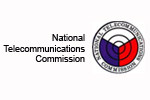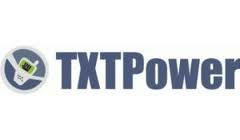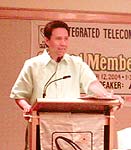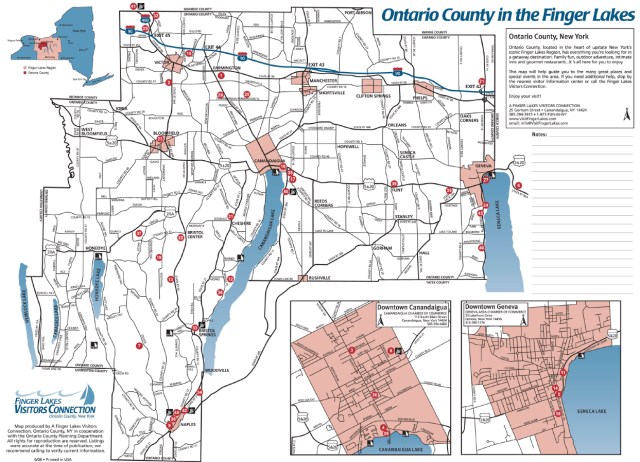
 Internet users in the Philippines have reacted angrily to a government proposal to limit broadband consumption that turns out to have been written by the telecommunications companies that would benefit from it.
Internet users in the Philippines have reacted angrily to a government proposal to limit broadband consumption that turns out to have been written by the telecommunications companies that would benefit from it.
The National Telecommunications Commission’s (NTC’s) proposal would allow broadband providers across the country to establish usage limits of 5GB per day, both to “combat piracy” and to “improve service” across the country. But critics charge, and at least one spokesperson for the Commission admits, many of the proposals in the draft document governing broadband were written entirely by the telecommunications companies themselves.
Much of the Philippines receives DSL broadband service from standard copper telephone wires. The country’s broadband rankings are dismal, scoring 141st out of 185 ranked nations in a Speedtest survey. Filipino Internet users suffer with slower average broadband speeds than users in Albania, Djibouti, Uzbekistan, and Libya.
Government efforts to improve service routinely run into well-manned roadblocks established by powerful, politically connected corporate interests.
What began as a pro-consumer reform measure to get providers to accurately depict their broadband speeds has been largely transformed into an industry wish-list fulfilled, according to TXTPower, a pro-consumer action group.
The group lists the problems consumers routinely endure from telecommunications providers — issues the NTC proposal largely fails to address:
“Failure to deliver promised services, failure to address customer complaints, failure to compensate customers for poor or botched services, the imposition of long contracts and so-called termination fees are hallmarks of the telcos when it comes to broadband Internet connections,” the group outlines.
TXTPower wants the Commission to schedule a series of public meetings across the country to allow consumers to provide input on the draft reform law. The group criticized an under-publicized December meeting that was attended largely by professional lobbyists for the telecom companies.
“We are sure that consumers nationwide will look forward to attending such consultations and tell the NTC what the so-called regulator should be doing,” the group says.
The group thinks setting a national minimum speed would be a good start.
“Up to now, the NTC has failed to follow the lead of telecom regulators worldwide in defining what broadband Internet is, whether delivered via dial-up, wired or wireless connections. For instance, the United States now defines “basic broadband” as Internet service with a download rate of at least 4 Mbps and an upload rate of 1 Mbps. Worldwide, the trend is to consistently raise the basic minimum,” said Tonyo Cruz, the group’s president and chief executive officer. “Without such a definition, the NTC leaves telcos practically free to hoodwink end-users, including business and the government, regarding broadband services, the cost and pricing, and to keep Philippine Internet access among the slowest and most expensive in the region. At the same time, we cannot begin to estimate the amount of access fees charged or practically extorted by telcos for undelivered, under-delivered or poor services.”
Instead, with the input of some of the Philippine’s largest telecom interests, the Commission has offered the country limited improvements based on rationing and full disclosure of the slow speeds most in the country endure. [Read about the experiences of one Philippine student who has endured bad broadband for most of his life.]
The draft law raised the ire of consumers with the insertion of clauses like this:
WHEREAS, it has been observed that few subscribers/ users connect to the internet for unreasonably long period of time depriving other users from connecting to the internet […] Service providers may set maximum limits on the data volume allowed per subscriber/user per day.
NTC Public Relations Officer Paolo Arceo readily admits this, and several other provider-friendly clauses came at the behest of the telecommunications industry.
“[This] particular clause was suggested by public and public telecommunications entities to prevent network abuse by unscrupulous subscribers who violate intellectual property laws, particularly on copyright, by downloading movies and software, similar to abusive subscribers of unlimited call/text promotions which were primarily designed or person-to-person use but used for voluminous commercial undertakings,” he said. “These types of network abuse limit accessibility to a few instead of providing adequate access for all of the subscribers. Commercial or high volume users may avail of other internet connection packages which have committed higher speeds and allow heavy data exchanges.”
But critics of the proposal warn broadband companies will seek to impose limits starting at 5GB of usage per day, with no limit on how low those caps could ultimately go to help guarantee performance requirements also included in the proposal.
“The proposal demands broadband providers live up to their advertised speeds and be up and running with satisfactory performance at least 80% of the time,” writes Quezon City resident Jose Albas, one of our readers. “Since providers blame ‘heavy users’ for performance problems now, imposing more drastic limits is the cheapest way to hit performance standards without spending money upgrading facilities.”
Cruz from TXTPower believes the usage cap proposal doesn’t adequately address the Philippines’ dreadful broadband experience.
“The NTC misses the entire point of the problematic broadband Internet connections in the Philippines: They are slow, unreliable and expensive compared to other countries in the region. But the NTC would not know this because the agency has not, up to now, sat down, studied and resolved to define what broadband really is,” Cruz said.
Popular Philippine blogger ‘Cocoy’ wrote a letter to Philippine President Benigno Aquino arguing the telecommunications authority is catering more to the business interests they regulate than the consumers they are supposed to represent, and for naught:
The NTC draft memorandum to put caps on Internet usage is regressive. It does both business and consumer no good. It will not encourage telecoms to reinvest to improve their service, and help the broader market unlock our potential.
Broadband in the Philippines has become increasingly important in a country with a troubled economic and political past now re-inventing itself in the new digital economy. The country’s broadband rankings in Asia, a hotbed of broadband development, has proved an embarrassment for the Aquino government.
<
p style=”text-align: center;”>Draft NTC Memo Order for telcos on Minimum Speed of Broadband Connection, December 2010
The World Economic Forum’s Global Information Technology Report ranked the Philippines 85th out of 133 countries, right behind Trinidad and Tobago, Russia, El Salvador, Ukraine, Guatemala and Serbia. To compare, Vietnam ranks 54th — Thailand ranks 47th.
Cutting users off after their daily ration is reached delivers a range of consequences, from from the annoying to a fundamental challenge to free speech. Jed Mallen illustrates what happens when providers protect their profits at the expense of their customers:
I was downloading the new Slackware release about a month ago via Globe Tattoo and after a while got an SMS message via their app that goes something like — fair usage policy is imposed. 800 mb is the limit. I was using their Php 50/24 hours promo. Yes my download stopped.
How about that? That’s not piracy. That’s a free operating system that I have been using for the last 10+ years.
International rights lawyer Romel Bagares warned that the implications of high volume data caps and other Internet Overcharging schemes had even greater implications: impeding consumers’ basic rights to online information.
“Whistleblower sites such as WikiLeaks process large amounts of information. Also, especially in the Philippines, you have many public schools that use the Internet heavily for educational purposes. Putting in caps would prevent people from sharing as well as receiving information,” Bagares said.
“This is against consumers’ interests, because you have people suffering from ‘bill shock’ as well as denying their right to information,” he told GMANews.TV.
Bagares doubts pirates are the real reason behind the proposed usage caps.
“Konti lang ang pirates! (There are so few pirates!) You’re punishing the majority [of the public] for the actions of a very few tech-savvy individuals,” he said.
Bagares’ views seem to be backed by the Commission’s own staff.
NTC Common Carriers Authorization Department Director Edgardo Cabarios told GMANews.TV that the entire scheme originated from the Philippines’ major phone companies.
“There were apprehensions raised [by telcos] over abusive users. This [data cap] is meant to discourage unfair use, to give everyone a chance. The idea is to protect the majority of consumers,” Cabarios said.
But Cabarios also admits that the “abusive users” the Internet Overcharging scheme is supposed to target account for just one to two percent of Filipino broadband consumers.
Unsurprisingly, the companies that proposed the usage limits are publicly praising the Commission’s willingness to insert them into broadband reform proposals.
“[The clause] is consistent with the demands of fair use. This guarantees that abusive consumers of broadband/internet service do not monopolize available capacity to the detriment of other paying customers. The definition of the volume cap can be left to the individual telecommunications providers to define based on the different service plan offers they provide, all in the spirit of competition,” said Philippine Chamber of Telecommunications Operators president Atty. Rodolfo A. Salalima in a letter to NTC commissioner Gamaliel A. Cordoba.


 Subscribe
Subscribe













